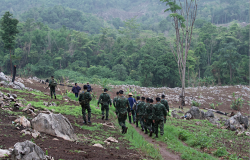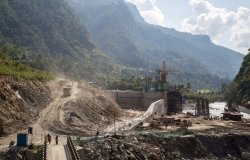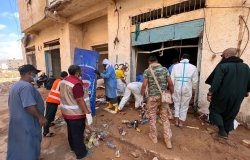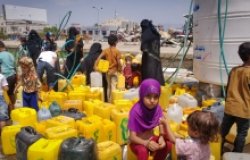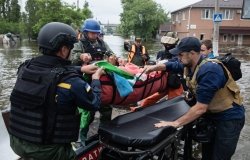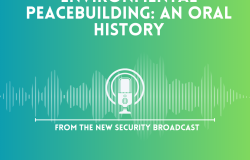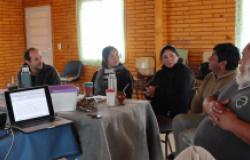Wilson Center Experts Weigh in on Japan's Earthquake and Aftermath
The earthquake and ensuing tsunami that struck Japan on March 11 has caused untold damage in the northern part of the country and taken thousands of lives. In the aftermath, Wilson Center experts analyze Japan's reaction to the devastation and discuss how things may change in the region looking forward.
Japan's Prime Minister, Naoto Kan, has called the 9.0 earthquake that struck on March 11 off the coast of Japan the country's worst crisis since World War II. The earthquake and ensuing tsunami have caused untold damage in the northern part of the country and taken thousands of lives. As we analyze the consequences of this natural disaster from afar we should not forget that this event is a great human tragedy. It is important, however, to consider how such a large-scale disaster will affect Japan and the region. Several Woodrow Wilson Center experts have analysis on Japan's reaction to the devastation and how things may change in the region looking forward.
Program Associate for North East Asia Bryce Wakefield examines Japan's emergency response to the earthquake in comparison to earlier quakes: "After the 1995 Kobe earthquake, government indecision prevented the timely deployment of Japan's Self Defense Forces and requests for international assistance. This time the government deployed the forces within an hour, asked for international assistance immediately, and then stood out of the way. It is clear that practical disaster response preparation instituted since the Kobe quake has saved many lives. Once this crisis has subsided, Japan may well continue to think of its armed forces primarily in terms of their disaster response capabilities."
Japan Scholar Nobuo Fukuda questions western media's praise for the preparedness and response of the Japanese government, recognizing a lack of preparedness for such an intense quake and the nuclear facility meltdowns that have followed: "When the damaged Fukushima Daiichi nuclear power plant was built more than four decades ago, the site was designed so that it would stay intact with a direct blow of a magnitude 6.5 quake. A quake of 9.0-magnitude was beyond expectation. Four out of the six reactors at Fukushima Daiichi have failed and are releasing radioactive material into the environment…This raises serious questions for the United States and other industrialized economies on the wisdom of promoting the construction of nuclear reactors and also of exporting them to emerging economies, especially to places that are known to be prone to earthquakes." Read more of Fukuda's analysis of the aftermath of the earthquake here.
Environmental Change and Security Program Director Geoff Dabelko agrees that the nuclear meltdowns following the earthquake have caused many to question the wisdom of nuclear power: "The evolving nuclear crisis in the aftermath of the earthquake and tsunami in Japan has already spurred countries to reassess their plans for nuclear power. Nuclear power has recently experienced a renaissance of interest as a non-fossil fuel-based energy source to help address climate change. Already in the United States and Europe we see revived calls for reevaluating the safety of nuclear power."
Public Policy Scholar Junhua Wu sees the Japanese response to the disaster and Chinese aid for relief efforts in Japan as factors that are positively changing the relationship between Japan and China: "The way the Japanese dealt with this disaster made many Chinese re-think the image that they have had about the Japanese. Chinese Communist Party education has lead to a typical image of the Japanese as cruel, ruthless and greedy, for many Chinese. However, despite facing such a huge natural disaster, there was no screaming or mass hysteria in Japan. Abusive and unreasonable statements against Japanese in the wake of the earthquake from parts of the Chinese community made Chinese recognize the ‘hate education' (anti-Japanese, anti-Westerner) has made Chinese numb and heartless. This disaster may play a positive role on formatting Chinese views on Japan to be more objective."
Related Links
Contributor
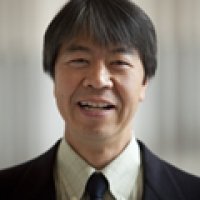
Nobuo Fukuda
Staff Writer, former Jakarta Bureau Chief and London Correspondent of Asahi Shimbun Newspaper, Japan

Environmental Change and Security Program
The Environmental Change and Security Program (ECSP) explores the connections between environmental change, health, and population dynamics and their links to conflict, human insecurity, and foreign policy. Read more
